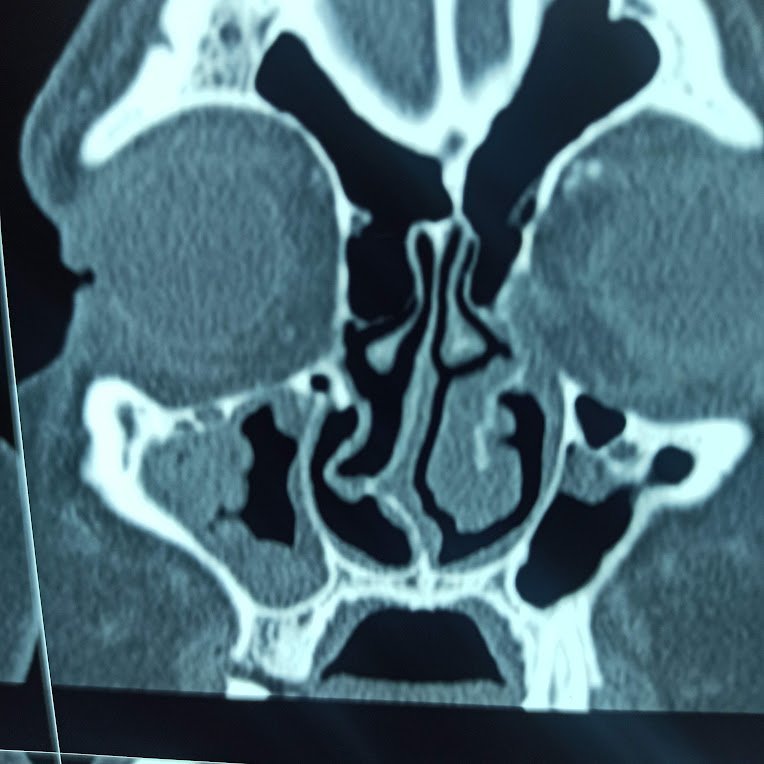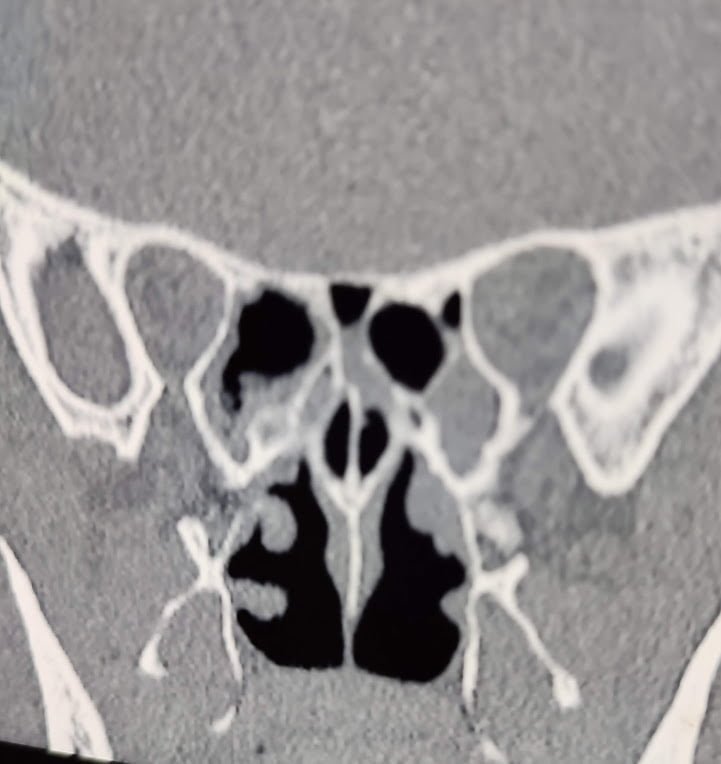Nasal Sinusitis Decoded
Nasal sinuses are air-filled spaces in the bones of the face and head surrounding the nose. They include the maxillary, frontal, ethmoid, and sphenoid sinuses. They are lined with mucous membranes and help to lighten the skull, provide resonance to the voice, and humidify and filter inhaled air.
Nasal sinusitis, also known as sinus infection, is inflammation of the nasal sinuses. The symptoms can include facial pain or pressure, nasal congestion, runny nose, post-nasal drip, and difficulty breathing through the nose. Nasal Sinusitis can be classified as acute (short-term) or chronic (long-term), depending on the duration of symptoms. Acute sinusitis typically lasts less than four weeks and can be treated with medications, such as decongestants and pain relievers, or antibiotics if caused by a bacterial infection. Chronic sinusitis lasts for more than 12 weeks and may require more aggressive treatment, such as sinus surgery or immunotherapy for allergies.
Causes
Sinusitis, can be caused by a variety of factors. Some common causes include:
- Infections: Viral or bacterial infections can cause inflammation and swelling in the nasal passages and sinuses, leading to sinusitis.
- Allergies: Allergic reactions can cause inflammation and congestion of the nasal passages and sinuses, making them more susceptible to infections.
- Structural Abnormalities: Deviation of the nasal septum or nasal polyps can obstruct the nasal passages and sinuses, making them more susceptible to infections and inflammation.
- Environmental Factors: Exposure to pollution, dust, smoke, or other irritants can cause inflammation of the nasal passages and sinuses.
- Immune System: Some people have a more susceptible immune system which can lead to more frequent or severe sinusitis
- Hormonal Changes: Hormonal changes can cause inflammation of the nasal passages and sinuses, making them more susceptible to infections.
If nasal sinusitis is left untreated, it can lead to:
- Recurrent Infections: Without treatment, sinusitis can lead to recurrent infections, which can cause damage to the nasal passages and sinuses.
- Nasal Obstruction: Chronic sinusitis can cause nasal obstruction, which can make it difficult to breathe through the nose.
- Facial Pain and Headaches: Chronic sinusitis can cause facial pain and headaches, which can negatively impact quality of life.
- Loss of Sense of Smell and Taste: Chronic sinusitis can cause a loss of sense of smell and taste, which can be permanent if left untreated.
- Dental Problems: Chronic sinusitis can cause dental problems such as tooth decay, gum disease, or jaw pain.
Treatment for sinusitis depends on the cause and duration of the condition. If you have chronic sinusitis, it’s also important to addresses the underlying cause of the condition and does not rely solely on the use of decongestant sprays.



Recent Comments